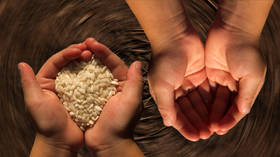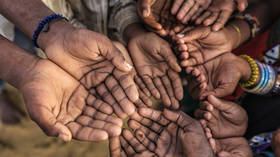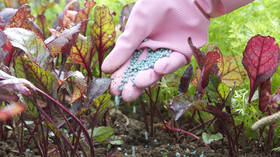WTO, IMF and World Bank call for trade restrictions to be lifted

The removal of trade restrictions would ease the global food crisis by minimizing supply disruptions and reducing prices, the World Trade Organization (WTO), World Bank and International Monetary Fund (IMF) said in a joint statement on Friday.
“Facilitating trade and improving the functioning and resilience of global markets for food and agriculture… are key,” they said.
“The 2008 crisis taught us that imposing global trade restrictions leads directly to increases in food prices. Removing export restrictions and adopting inspections and licensing processes that are more flexible help minimize supply disruptions and lower prices.”
The joint statement was published on the World Bank’s website, and was authored by its president, David Malpass, along with IMF Managing Director Kristalina Georgieva, WTO Director-General Ngozi Okonjo-Iweala, and the executive director of the World Food Program, David Beasley.
They noted that the Covid-19 pandemic, disruptions in international supply chains, and the fallout from Russia’s military operation in Ukraine have severely disrupted food, fuel and fertilizer markets. Some 345 million people in 82 countries are currently at risk of food insecurity, according to the WFP. The situation has been exacerbated by the fact that around 25 countries have food export restrictions that affect more than 8% of global food trade, and fertilizer prices have doubled over the past year.
As well as lifting trade restrictions, the officials said the food crisis could also be eased by providing immediate support to the most vulnerable countries by facilitating the purchase of food for humanitarian purposes. Boosting production and investing in climate-resilient agriculture are also seen as necessary measures, they said.
The authors of the statement also stressed the need to find a diplomatic solution for the supply of Ukrainian grain and fertilizers, which are currently blocked due to the conflict in the country. President Volodymyr Zelensky said in early June that up to 25 million tons of agricultural products were blocked due to the crisis.
Kiev and its Western allies have accused Russia of preventing these products from leaving the country, but Moscow has repeatedly denied the accusations. It claims that Ukrainian troops mined the ports where ships carrying agricultural produce are stationed, making it impossible for them to depart. This week, delegations from Russia, Ukraine, Turkey and the UN held talks in Istanbul in relation to the situation. Details of the talks have not yet been disclosed, but, according to the WSJ, there is a plan to release the ships from three ports with an escort from the Ukrainian fleet. A ceasefire will be declared to allow the ships to depart, and Turkey will check empty ships that arrive to collect grain.
Russia insists that Ukraine-related Western sanctions have led to the aggravation of the food crisis and problems with the supply of mineral fertilizers. While these products were not formally sanctioned, some of the owners of companies that manufacture them were subject to restrictions, which “makes it difficult to conclude contracts and complicate financial transactions,” according to Russian President Vladimir Putin. He recently said the country could increase the supply of agricultural products and fertilizers to the global market in exchange for the lifting of sanctions.
For more stories on economy & finance visit RT's business section














